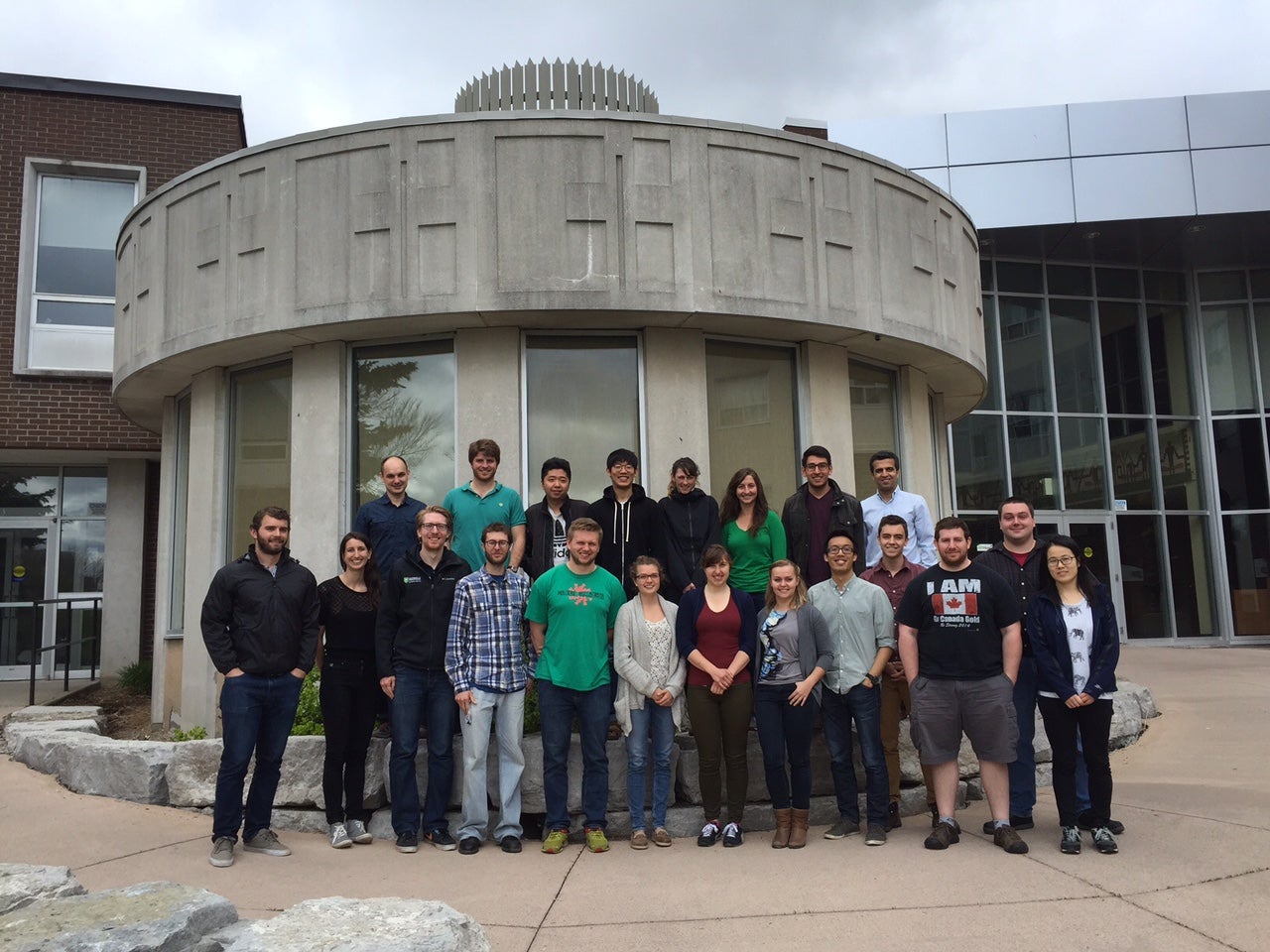
Twenty-one graduate students and postdoctoral researchers attended the Reactive Transport Modeling I short course at University of Waterloo, from May 2 to May 13. The short course is part of the Training toward Environmentally Responsible Resource Extraction (TERRE) project supported through NSERC’s Collaborative Research and Training Experience (CREATE) program. Instructors of the course were Philippe Van Cappellen and Fereidoun Rezanezhad of the Ecohydrology Research Group.
The hands-on short course reviewed the concepts and mathematical formulations underlying the quantitative description of reactive transport systems. Focus was on the coupling of biogeochemical reactions to transport processes in near-surface environments (lakes, soils, sediments, and aquifers). Assignments ranged from simple “back-of-the-envelope” mass balance calculations to the development of finite difference codes. Students learned how to assemble the building blocks of a reactive transport model. Particular attention was given to the formulation of biogeochemical reaction kinetics, mixed kinetic-equilibrium models, transport processes, parameter calibration, numerical errors and simulation scenarios. Three special topics on flow and transport in porous media, soil processes and uranium in the environment were also reviewed with some modeling examples using Hydrus and PHREEQC.
The course will be offered again next year. Those interested in this or other training activities of TERRE-CREATE should contact the project coordinator, Steve Holland (s2hollan@uwaterloo.ca).